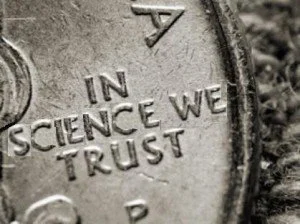RAND Corporation, Carnegie Mellon University, Challenger Center
Read MoreNortheast Normal University, Changchun, China
Read MoreUniversity of Massachusetts Amherst (Published in JAMA)
Read MoreScienceDirect
Read MoreFrom the Proceedings of the National Academy of Sciences
Read MoreScience
Read MoreUniversity of Zurich
Read MoreUniversity College London
Read MoreUniversity of Illinois Urbana-Champaign
Read MoreMigration Policy Institute
Read MoreDuring the COVID-19 pandemic, young people have been exposed to distressing content about the disease without knowing whether they can trust such content. This indicates a need to examine the effects of social media use on mental health and well-being.
Cornell University
In this paper, we present the challenges and opportunities of combining automatic and manual fact-checking approaches to combat the spread on online misinformation also highlighting open research questions that the data engineering community should address.
University of Queensland, Brisbane
This research examines the health of the local journalism ecosystems in three New Jersey communities: Newark, New Brunswick, and Morristown. The goal of this research is to develop and apply a set of reliable, scalable performance metrics intended to inform funders, policymakers, researchers, and industry professionals about the state of journalism in local communities and, ultimately, its connection to healthy democracy, and to help guide decision-making about possible areas of intervention.
Rutgers University
This article examines 3,517 Facebook ads created by Russia’s Internet Research Agency (IRA) between June 2015 and August 2017 in its Active Measures disinformation campaign targeting the 2016 U.S. presidential election.
University of Florida
Today, nearly 41% of Americans listen to podcasts monthly, and almost one in four Americans look to podcasts for their news. Globally, the medium is projected to reach an audience of 504.9 million by 2024, while ad revenue in the United States is expected to double between 2022 and 2024, jumping from $2 billion to $4 billion.
Brookings Institution
Misinformation is a worldwide concern carrying socioeconomic and political consequences. What drives its spread?. The answer lies in the reward structure on social media that encourages users to form habits of sharing news that engages others and attracts social recognition.
Proceedings of the National Academy of Sciences
Social media use is becoming an established feature of crisis events. Affected people are turning to these sites to seek information, and emergency responders have begun to incorporate them into communications strategies. Not surprisingly, one concern among responders and other officials is the rise of misinformation on social media.
University of Washington
The World Wide Web has changed the dynamics of information transmission as well as the agenda-setting process. Relevance of facts, in particular when related to social relevant issues, mingle with half-truths and untruths to create informational blends. In such a scenario, as pointed out by, individuals can be uninformed or misinformed and the role of corrections in the diffusion and formation of biased beliefs are not effective.
IUSS Institute for Advanced Study
As people across the globe have increasingly turned to Facebook, Twitter, WhatsApp and other platforms to get their news and express their opinions, the sphere of social media has become a new public space for discussing – and often arguing bitterly – about political and social issues.
Pew Research Center
Amid the political lies and misinformation that spread across the country throughout the 2022 midterm elections, statements by candidates in 29 states rarely faced the scrutiny of independent fact-checkers. Why? Because there weren’t any local fact-checkers.
Duke University Reporters' Lab




















